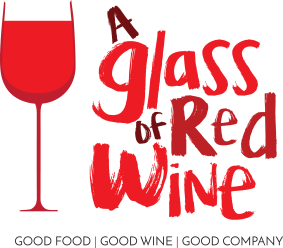

It is really satisfying to grow for a market that appreciates what you grow. They appreciate good food grown with care
I’m beginning this series to hopefully highlight the work, challenges but ultimately the incredible passion and talent of a huge number of farmers, producers and artisanal creators that exist in each of our localities around the island of Ireland. By telling their stories I hope that I can give an insight into the wonders of the natural produce we have in Ireland and the people behind them.
Is there really anything as quintessentially Irish as the potato? The Food on the Edge Symposium, which welcomes the who’s who in food from the around the globe for the third year running this October, is even using it on the front of their T-shirts with the cheeky, political flirting statement, “I am an immigrant”. I consider myself to have a fairly extensive but not exhaustive knowledge about produce and ingredients. However, I had never even known that there was such a thing as a purple potato before I first saw Michelin starred chef JP McMahon from Aniar in Galway use it in a dish about a year ago. JP kindly gave me a bagful and, cradled under arm like a child with sweets, I brought them home to cook. Once you’ve eaten one you’ll begin to understand that the colour plays just a small part in its success, what shines here is the texture and flavour of the potato.
When Maria Flynn went from hedge funds to hedgerow, leaving her busy, full-time career to join her husband David on the family potato farm in Co. Louth, she was not sure what was in store. After a number of admittedly tough years during which the price that potato farmers could demand for their produce tumbled the Flynns knew they had to think differently. Maria points to “supermarkets using fresh produce as loss leaders” as the biggest challenge to producers in Ireland today and this crippling tactic lead them to reimagine their business strategy by forcing them to think outside the box. And think outside the box they did. They thought purple. As opposed to try stop flogging a dead horse by selling their potatoes for a loss to the supermarkets Maria thought there was room to sell directly to restaurants and chefs. “My husband and his family have been growing potatoes for 2 generations. I felt sure there was a market for specialty potatoes to the restaurant trade”, she explains. From starting with an idea she sourced the seeds from Scotland and began growing the Purple Violetta. The next challenge arrived following harvesting when it came to getting their product to market. Selling initially directly to chefs Maria highlights both the immediate connection you can get from social media and indeed the need to partner with a food wholesaler as two of the most important aspects of their business strategy.
“I do all marketing myself. I feel it is essential for small producers like me to build up a relationship with customers one to one as much as possible. It takes a lot of time and effort but I really believe it is an integral part of the business. In the beginning I was marketing without even realising I was doing it purely by interacting on social media with my customer base.”
As chefs from around the country began using the Violetta and sharing the results of their culinary talents online it soon became evident for the need to establish a relationship with a wholesaler. So what advice does Maria offer to those finding difficulty in getting their product to market? “It is virtually impossible to distribute on a national level without partnering with a food wholesaler. In my opinion the trick is to find one that fits your business in terms of ethos and personnel”. Fine food specialists La Rousse Foods came on board and helped distribute on a much wider scale bringing the Violetta to even newer heights. Newer varieties were sewn last season to include the Pink Fir Apple, the Clodagh, and the Harlequin extending the range of specialty potatoes on offer. However with seasonality obviously an issue Maria is constantly thinking about how to further develop and expand the business.
“Seasonality is important to chefs. I don’t think they would appreciate having my potatoes year round”.
Maria is now looking into other specialty vegetables with a crop of purple sprouting broccoli due to be harvested later on in the year and others being investigated. So what does the future hold? “I think if it’s not broken don’t fix it. I will definitely be adding more specialty vegetables to our range. Our farming methods serve us well so I don’t envisage any major changes. Both my husband and myself are part of the growing process from start to finish and oversee all aspects of the growing”.
This sort of passion and involvement of Maria and David in all aspects of the produce and business makes Ballymakenny stand apart. In January of this year the twitter account of the Michelin Guide controversially and bizarrely tweeted, “There really is no point to purple potatoes”. I think Ballymakenny Farm and a lot of others would beg to differ.